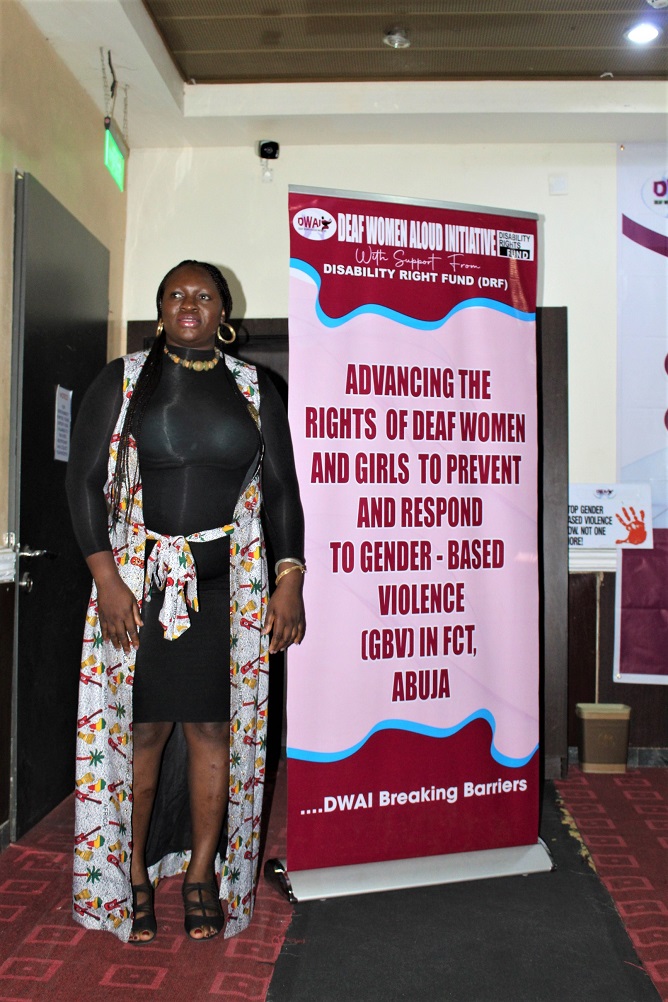Deaf Women has suffered a lot of neglect in the area of Sexual and Reproductive Health Right, the communication gap has hindered them from having access to social justice when they experienced Gender Based Violence and also access to sexual and reproductive health services in line with Article 6 (Women with Disabilities) and article 16 (Freedom from exploitation, violence and abuse) of United Nations Convention on the Rights Of Persons with Disabilities (UNCRPD), and Sustainable Development Goals (SDGs) Goal 5 (Gender Equality) and 16 (Peace, Justice and Strong Institutions).
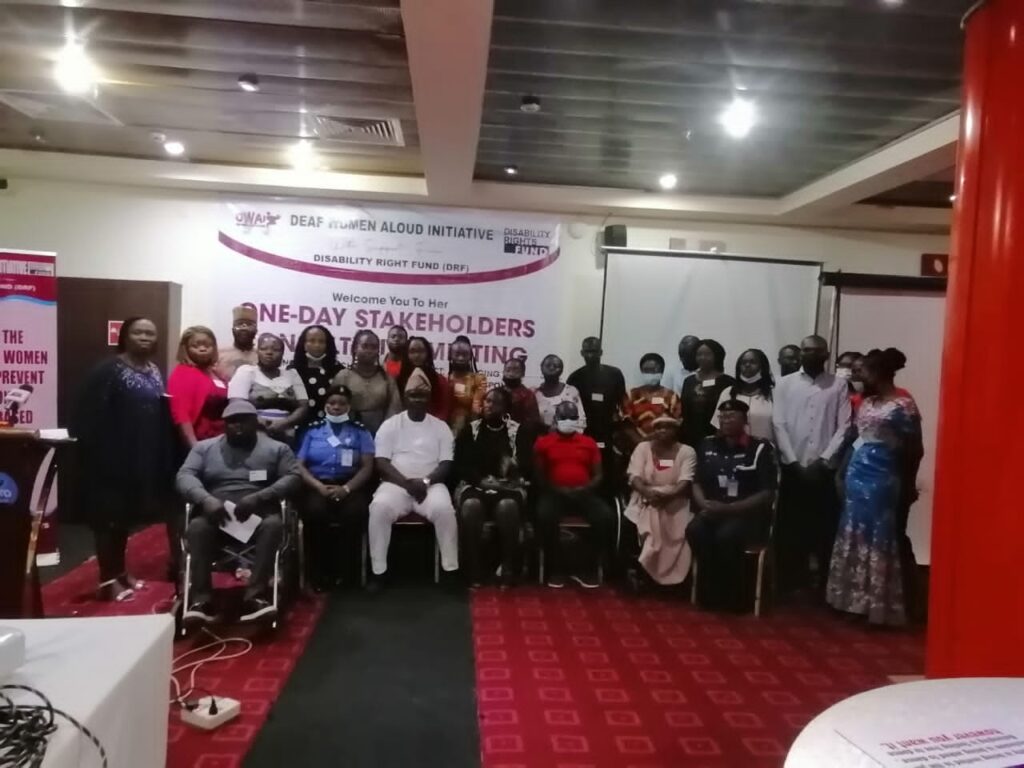
It is based on these that Deaf Women Aloud Initiative (DWAI) conceived a new project funded by Disability Rights Fund (DRF) to create awareness, raise consciousness about Deaf Women and increase the implementation level of relevant existing laws, policies and programs to improve their access to GBV and SRH Services.
On Tuesday 8th February. 2022 in Abuja, DWAI organized a one day stakeholders meeting to launch the project and kick start their well-articulated activities towards advancing the rights of deaf women and girls in the FCT.
The Executive Director of DWAI, Mrs Hellen Beyioku-Alase, said Deaf women and girls are currently living in obscurity, deprivation and silent misery. One of the most serious obstacles preventing them from achieving full justice issue of Gender Based Violence is because of their invisible disabilities of hearing impairments which makes it hard for them to report cases of GBV.
“Presently many women and women with disabilities across the globe are standing up for their rights to make decisions for their lives, health as well as prevent sexual and gender based violence. It is unfortunate that deaf women who also have the same sexual and reproductive health rights as other women, often face barriers in information and services. The society and individuals see deaf women as unfit to benefit from policies and programmes intended to address such problems” She stated.
She also said that Government and private organizations on the other hand are increasing their efforts to alleviate the consequences of Gender Based Violence in the Society. However, Deaf Women are unlikely to benefit from policies and programmes intended to address such problems. For example, the Sexual Assault Response Centres (SARC) police stations, hospitals are readily available for women but not deaf women as they cannot access such services due to communication barriers.
“The Nigeria disability Act and United Nations Convention on the Rights of Persons with Disabilities (UNCRPD) stipulated and mandated all state parties and organizations across the country to recognize the rights of person with disabilities including deaf women and girls to access professional sign language interpretation in all facets of life and facilitate their accessibility (Art. 9); the reproductive rights (Art 23); the rights to access sexual and reproductive health (SRH) information and services (Art. 25); and the specific need for empowerment of women with disabilities (Art 6).
She called on government and non-governmental organizations, the international community, agencies or institutions to ensure full participation with sign language noting that “nothing about us without us.”
She beckoned that Deaf women should be included in service delivery for a better inclusive society.
She expressed hope that at the end of the project, they would be able to produce a comprehensive training manual on Gender Based Violence for Gender Women and Young Girls in Nigeria, improve Deaf Women Knowledge on Gender Based Violence and its consequences and also provide guideline for reporting of GBV related issues.
The program officer, DRF, Theophilus Odaudu in his remark, informed that DRF is an organization that supports Organizations of Persons with Disabilities (OPDs) in Nigeria and other parts of the world to advance disability using the framework of UNCRPD, SDGs, Global Disability Summit Commitments, National Laws and other disability frameworks. The idea is to encourage Persons with Disabilities (PWDs) to do advocacy by themselves in the spirit of “Nothing About Us Without Us”. The drive force behind DRF is seeing that PWDs are able to speak for themselves, be able to direct policies, reforms in a way that suits their needs as recognized by various rights instrument.
He said that DRF is very pleased to be supporting DWAI on this initiative to further advance the rights of deaf women and girls to have access to Sexual and Reproductive Health Services and learn how they can protect themselves from Gender Based Violence or any other forms of Violence.
He said that they have been supporting DWAI in the past and they are impressed with the level of work that DWAI is doing and he is expectant that at the end of this project, deaf women would be better than the way they were before the project, they should know their rights and be able to stand up for their rights.
The Minister of Women Affairs Dame Pauline Tallen ably represented by Madam Gloria Onwuzirike while applauding DWAI for the laudable project said that it is coming at the right time because women make up half of the World Population, they are still a wide gap when it comes to economic opportunities and growth.
She also said that in the growing and dynamic world, patriarchy and cultural practices have inhibited the potentials of women and girls in our society, the only thing that is constant is change.
She said that what is untimely needed is Gender equality, an increase in women contributing to economic development of any Nation or society especially as regards to women with disabilities including deaf women and girls.
She affirmed that there is urgent need to bridge the communication gap between deaf women and other in various sectors in Nigeria. It is also imperative to ensure that the rights of Deaf women and girls are protected essentially among health workers where they seek SRH services.
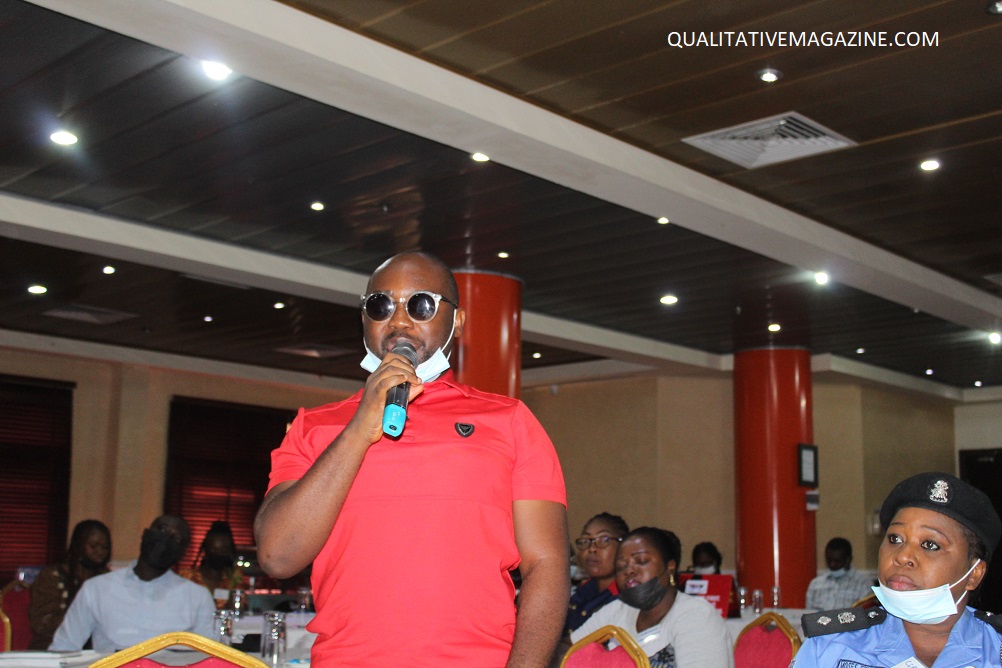
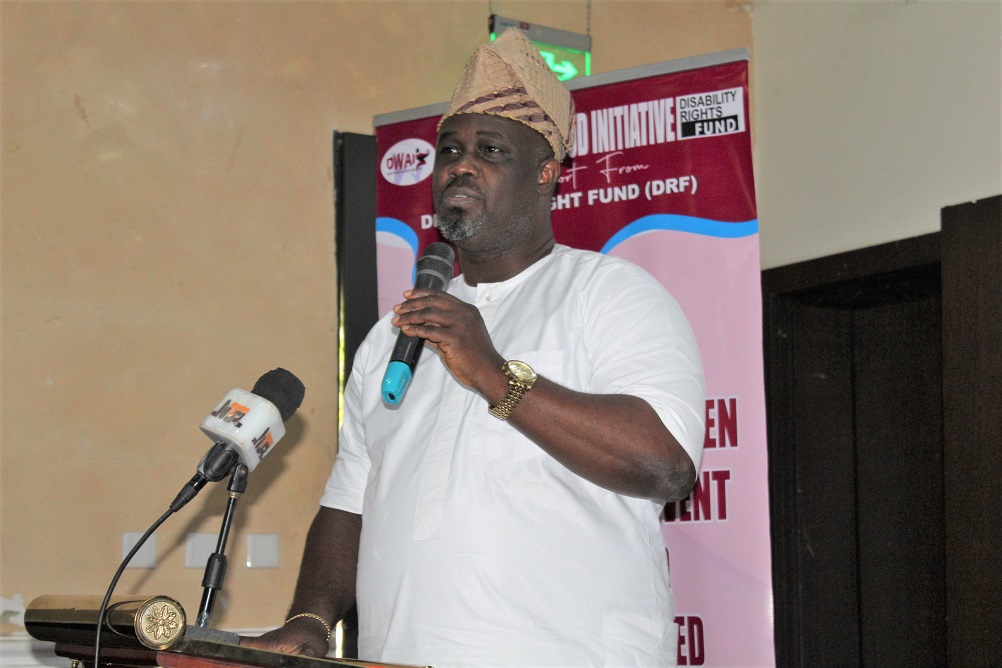
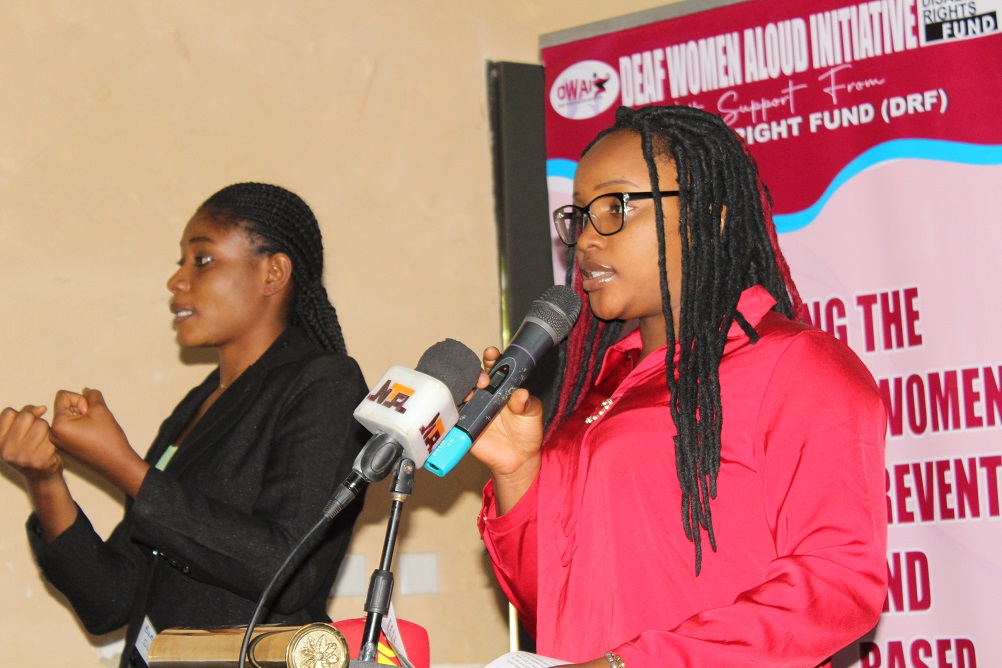
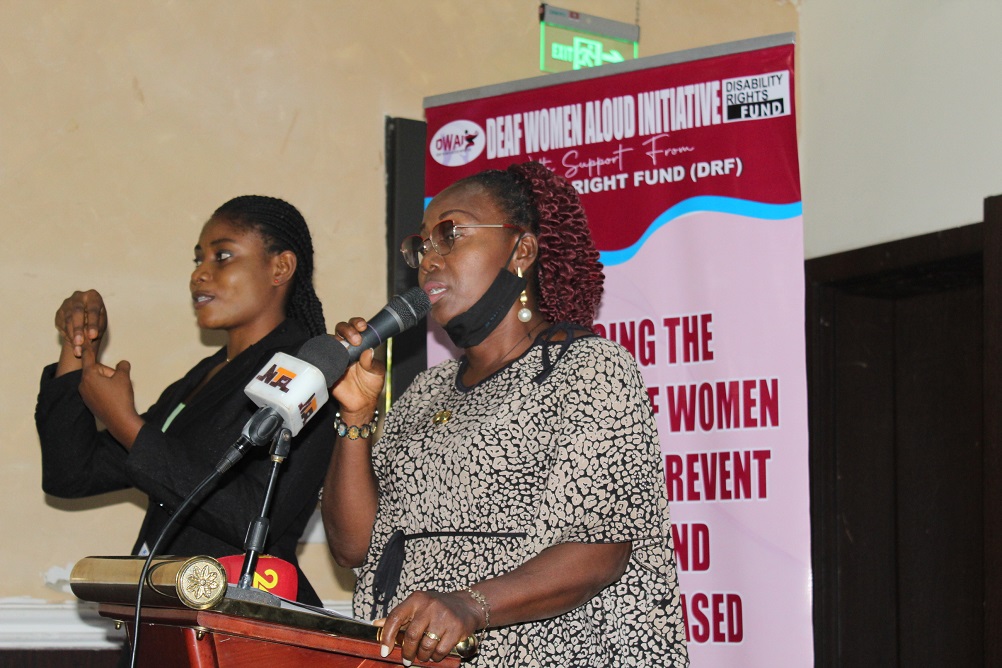
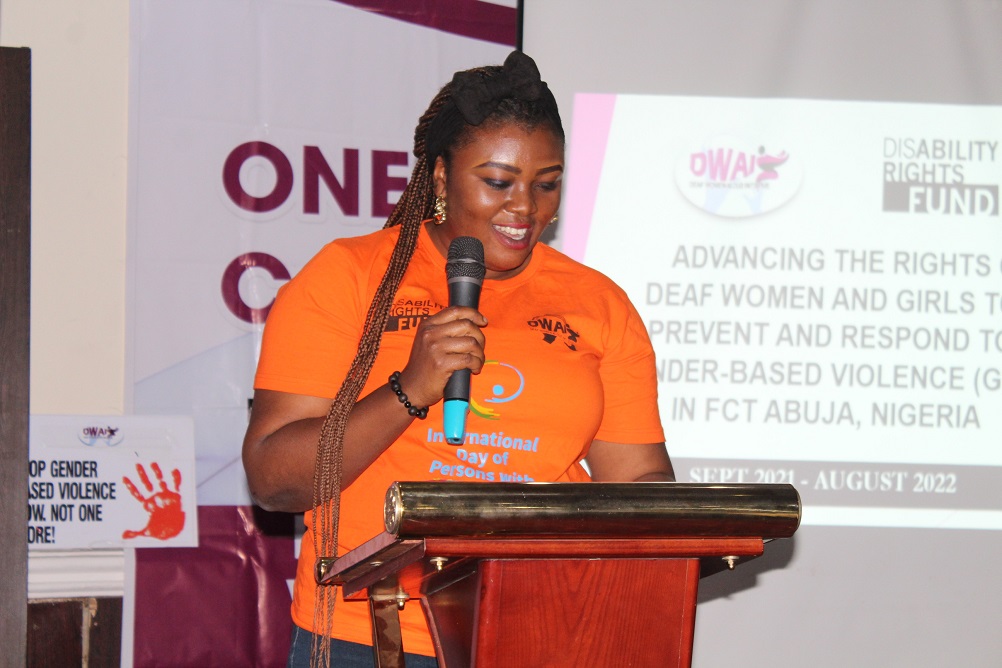
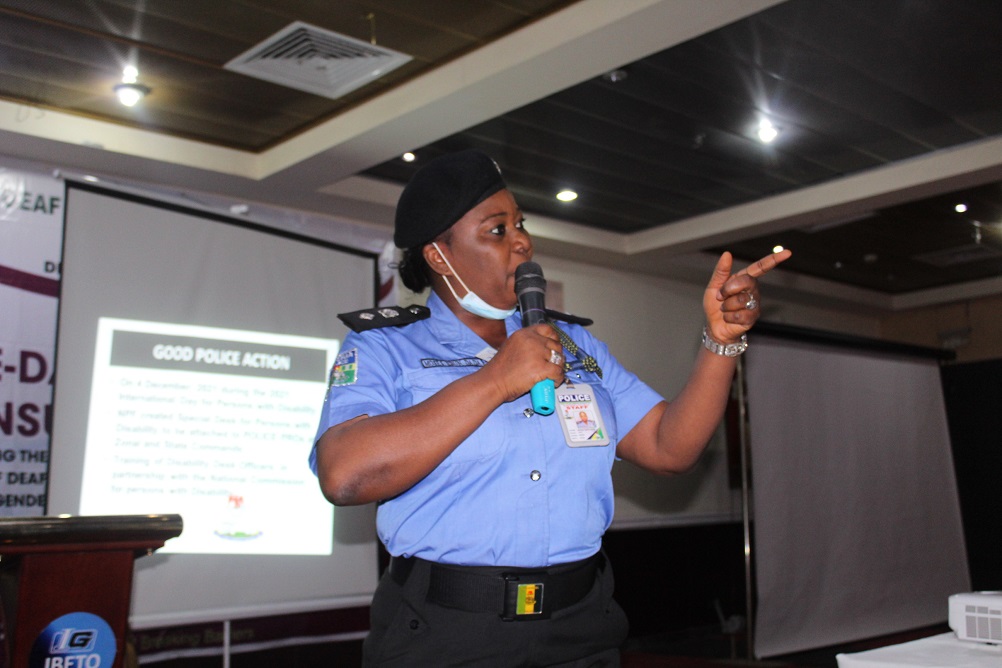
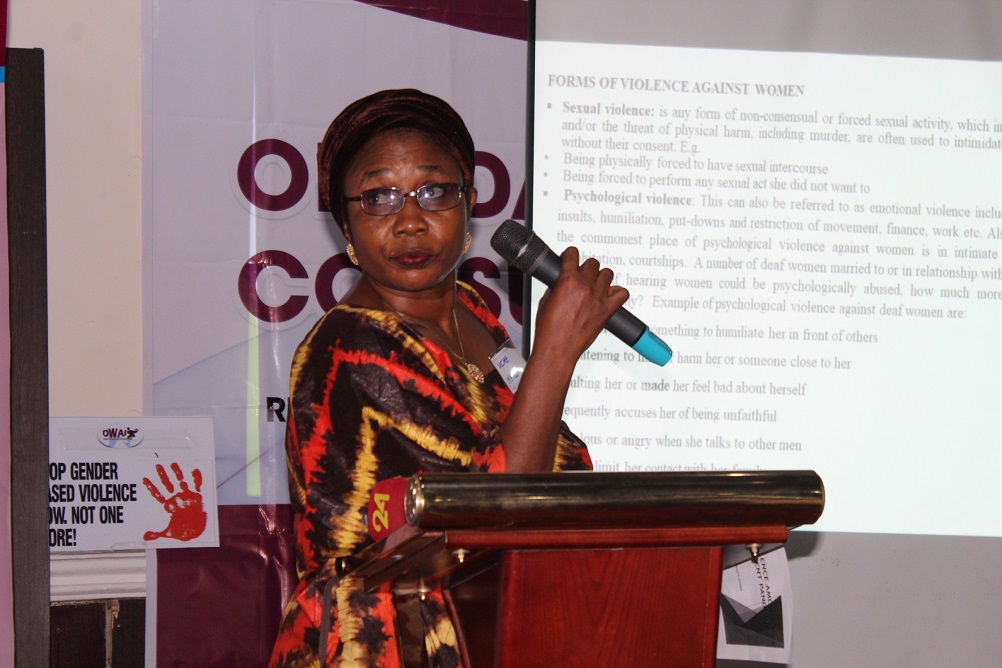
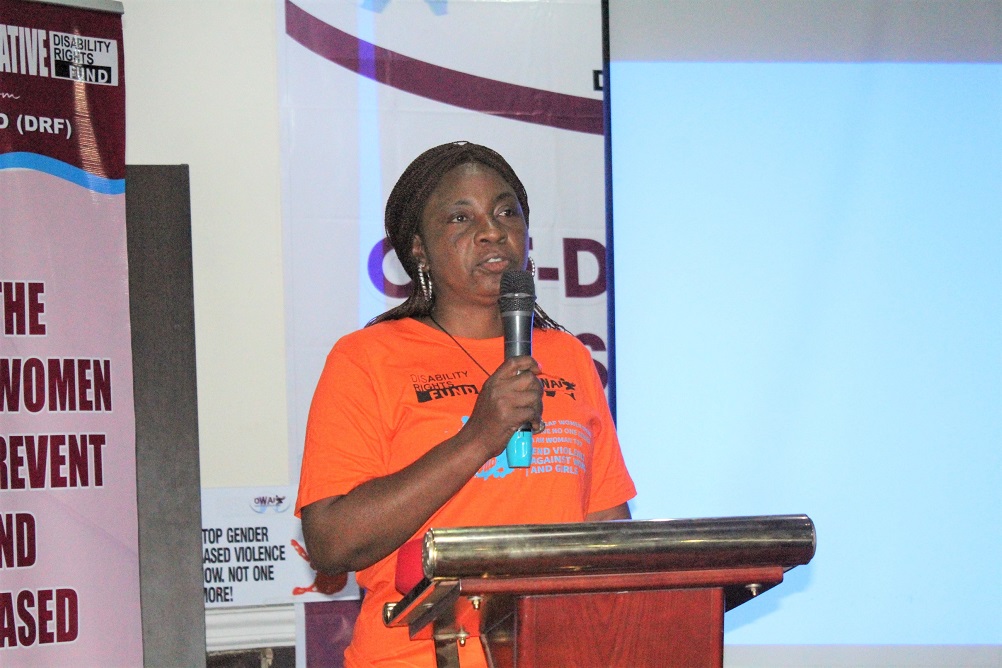
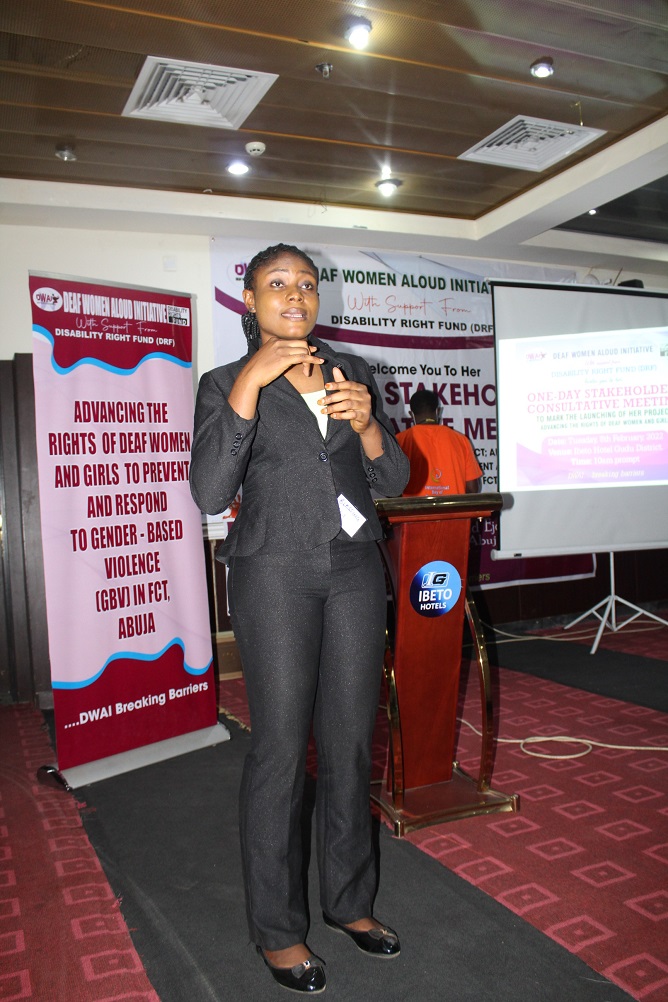
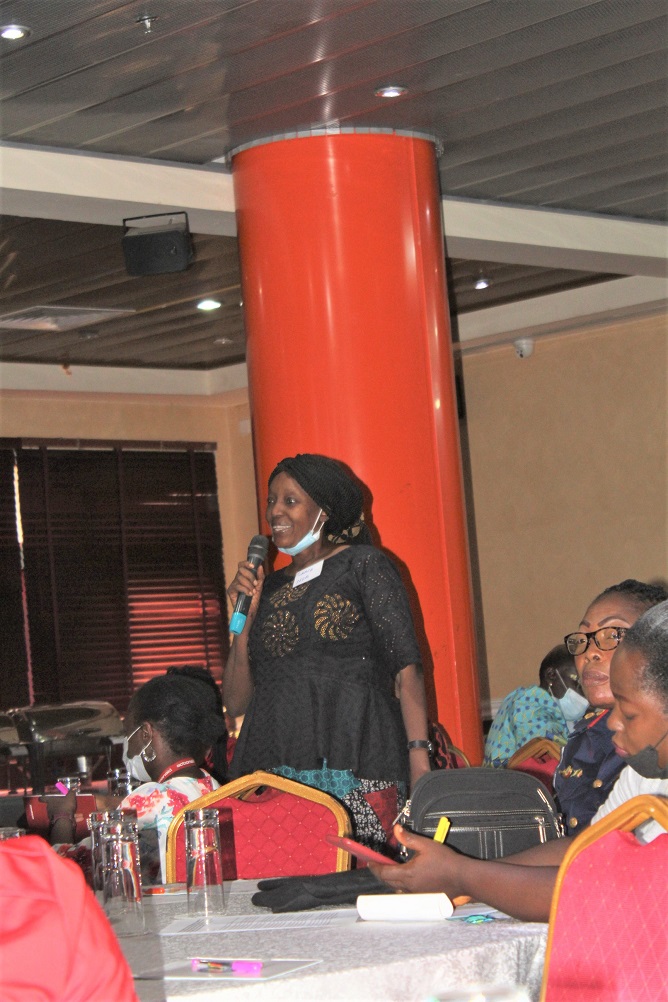
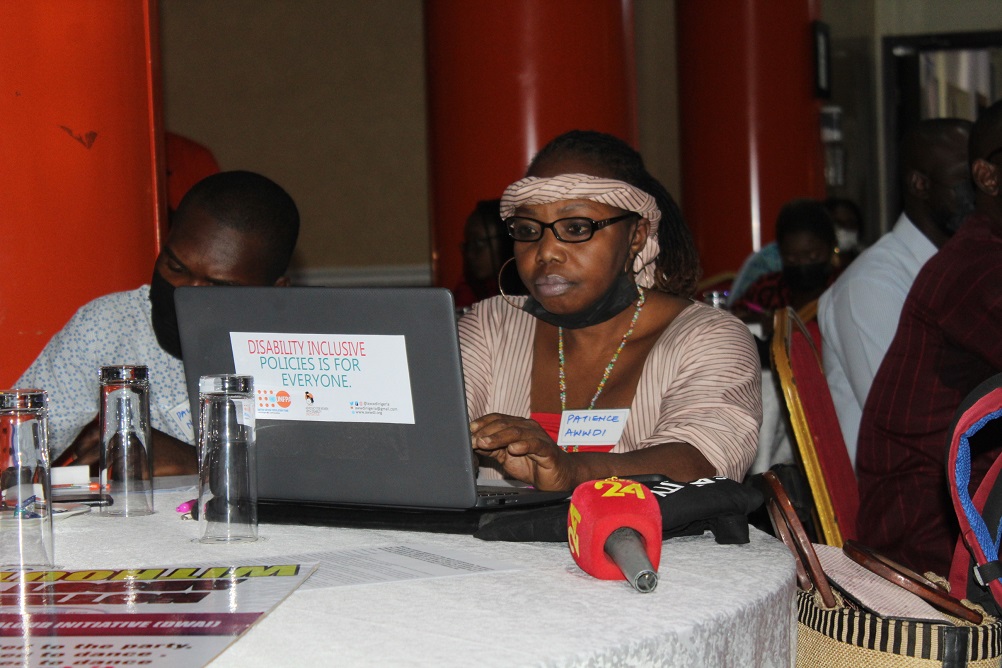
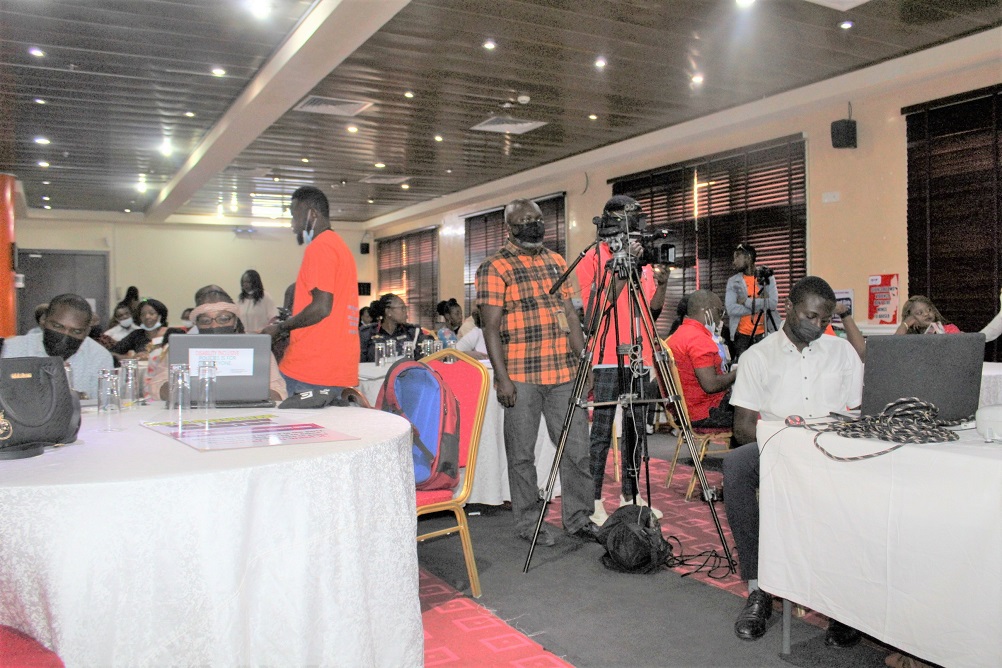
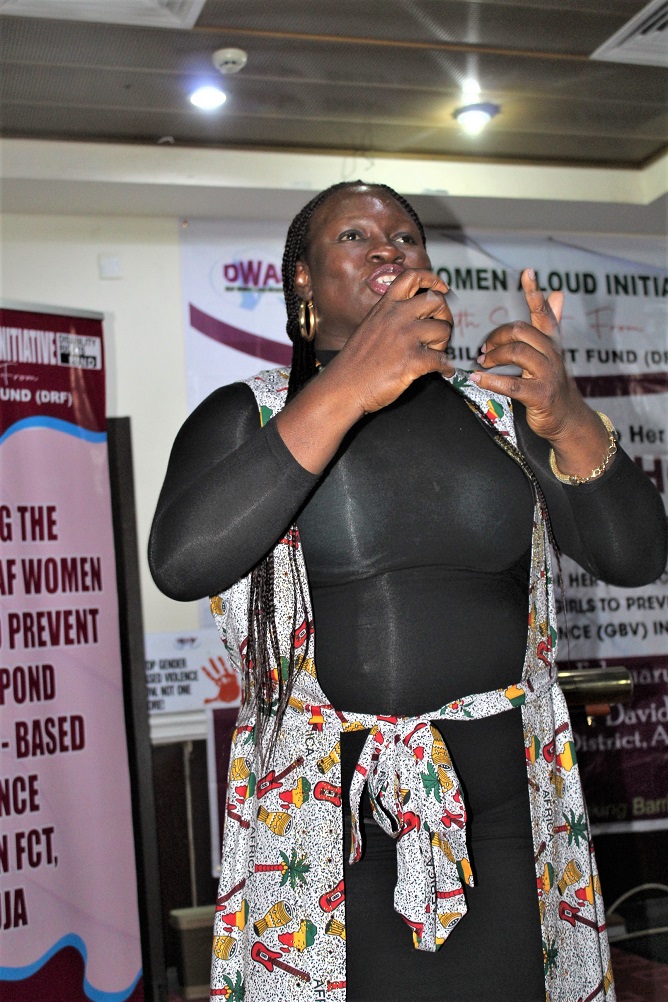
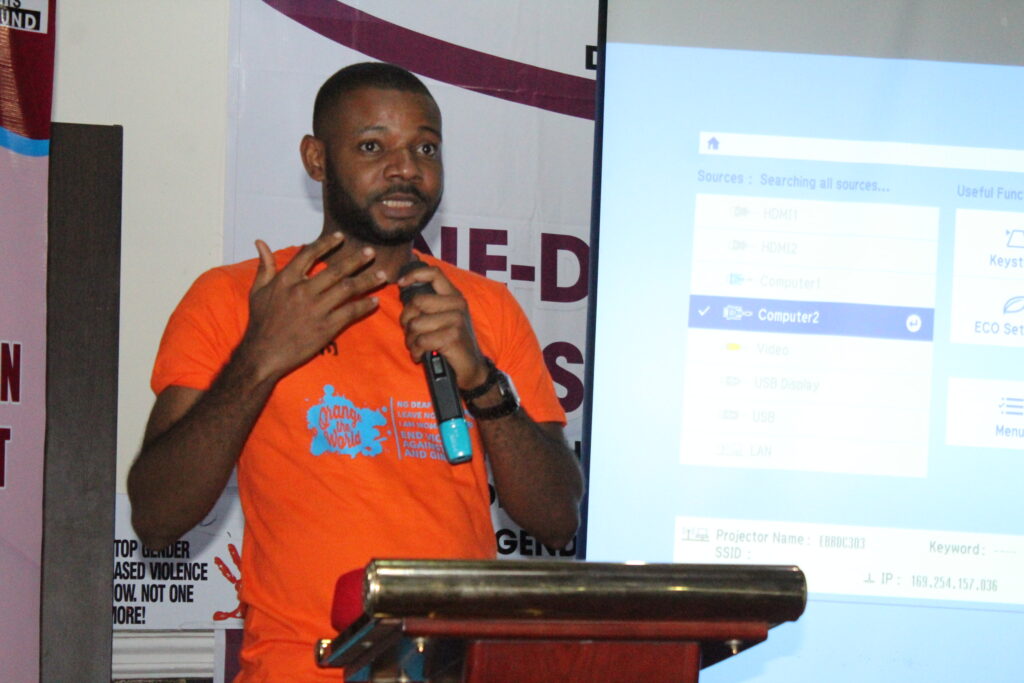
She informed that Women Affairs Ministry has been working assiduously with deaf women, women wth disabilities in general and other vulnerable group to ameliorate their sufferings. For example, the Sexual Assault Response Centres (SARC) police stations, hospitals are readily available for women but not deaf women as they cannot access such services due to communication barriers. The Women Affairs Ministry and the Ministry of Humanitarian Affairs to train 45 social workers on sign language interpretation.
She revealed the Women Affairs Ministry’s plan to collaborate with Ministry of Health to post professional sign language interpreters to Health Facilities but the challenge is that there is no institutionalized sign language interpretation cadre in the civil service.
She also said that the ministry has been addressing the welfare of the women by collaborating with other relevant agencies to promote gender equality.
She stated that Women Affairs Ministry playing a major part in establishment of Sex Offenders Register understand the fact that Women with Disabilities are the worst hit and such she assured the commitment to collaborate DWAI towards the achievement of the theme of project: Advancing the Rights Of Deaf Women And Girls to Prevent And Respond to Gender Based Violence in The FCT.
Other organization who pledged their support to the project were; NSCDC, WRAPPA, NOA, Marie Stopes, NHRC and many others.
Other activities were Overview of the Project by Abiola Awakan where she stated that Deaf women would be trained, experience sharing from the deaf women which would be documented for reference purpose, Media practitioners training on SRHR, and Stakeholders engagement, Presentation on Strengthen Law Enforcement Response on GBV for Deaf Women by CP Ojukwu (RTD) represented by an experienced Police officer on Gender, CSP Moses Ebun Dada and Presentation on GBV amongst Deaf Women: Silent Pandemic by Uche Henritta Uwadia-Garba, from National Human Rights Commission.
TQM reports that the project is targeted to Deaf Women in the FCT and the targeted Deaf Women would be drawn from both the rural and urban communities. DWAI also expressed readiness for more support and collaboration to make the project a resounding success.

